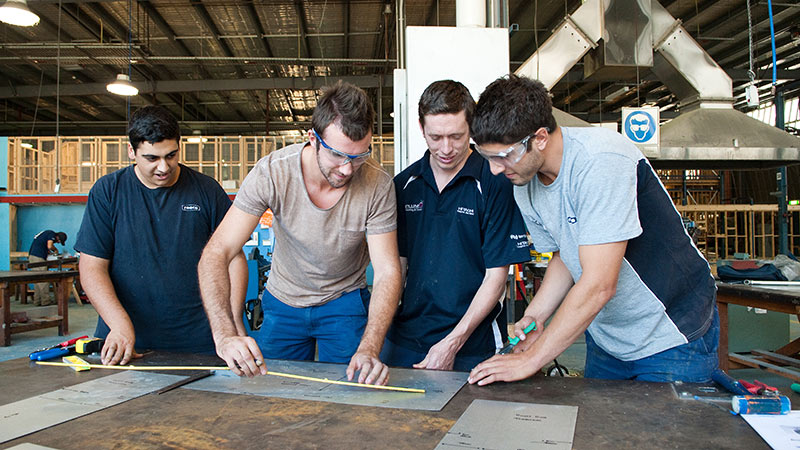Improving young people’s transitions from school to work, further study & training
Early adulthood marks a shift away from full-time education and training towards the labour market, and aspirations to develop careers and secure strong economic futures.
Some young people will build on academic success at school by continuing to higher education, while others build on skills acquired in training or the labour market. Some young adults are still or newly vulnerable to the external economic forces driving the labour market and are either in part-time jobs or are experiencing unemployment.
CIRES researchers examine patterns of participation in education, training and work for young Australians moving into adulthood to provide insight into how education systems are improving transition for young people.

Improving participation & success in VET for disadvantaged learners
This national study of vocational education and training (VET) in Australia sought to understand the factors that underpin participation and success for disadvantaged learners.
Combining regional and institutional analysis, the project found that VET plays a crucial role in improving the education and work opportunities of disadvantaged Australians. While differences in VET participation and completion are linked to regional differences in economy, population, and context, statistical analysis revealed that some regions achieve better-than-expected success relative to their local ecosystem.
Online surveys undertaken with VET provider staff and case studies revealed that institutional practices contribute to these positive outcomes, including course-based strategies and learner-level support.
Findings are contained in a report for National Centre for Vocational Education Research (NCVER) published in March 2018.
Client: National Centre for Vocational Education Research
Years: 2016-2017
Download the report (PDF, 1.1 MB)
CIRES researchers included
Key skills for the 21st century: an evidence based review
This study established a comprehensive and up-to-date overview of the competencies that policy makers, researchers and practitioners increasingly expect students to acquire at school. Acknowledging the importance of educating students beyond literacy and numeracy, the project surveyed the prevailing competencies that education systems seek to equip their learners with.
The review of literature identified nine skills and dispositions central to education in the 21st century, using existing literature from various fields of research to define each skill. The analysis then examined half a dozen jurisdictions where efforts to teach and assess these competencies have emerged. This international review highlights both positive developments across systems and progress yet to be made.
This major report was published online as part of the New South Wales Department of Education Future Frontiers report series. It worked to inform the debate around the implications that technology and social change will have for education.
Client: New South Wales Department of Education
Years: 2017-2018
Download the report (PDF, 2.2 MB)
Download the paper presented at 2019 ACER Research Conference (PDF, 195 KB)
CIRES researchers included